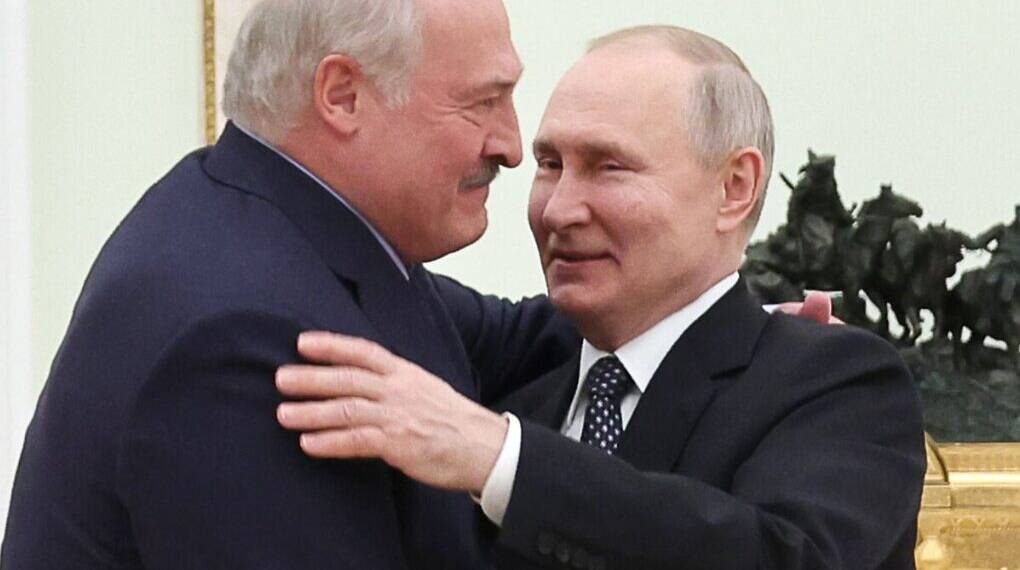In a landmark move underscoring the deepening integration between Moscow and Minsk, Russian President Vladimir Putin signed a law on July 23 that grants Belarusian citizens permanently residing in Russia the right to vote in local elections and run for municipal office.
The law marks a symbolic and strategic step in advancing the decades-old Union State project between the two nations — and reflects a broader ideological ambition: the resurrection of pan-Slavic unity and the restoration of Soviet-era influence.
Legal Integration as a Political Signal
The legislation updates a 1998 bilateral agreement on mutual rights, aligning civic privileges for Russian and Belarusian citizens in each other’s countries. It mirrors existing Belarusian laws that already grant Russian nationals similar rights to vote and participate in local elections.
According to state media, Putin framed the measure as a way to integrate Belarusians more fully into Russia’s civic and political life. But the move is far more than administrative. It signals a continued drive toward the full implementation of the Union State treaty signed in 1999, which envisions not only aligned political and legal systems but potentially a shared currency, joint defense, and unified foreign policy.
Pan-Slavism and the Soviet Legacy
For President Putin, the initiative reflects long-standing ideological goals that extend beyond Belarus. At the heart of his vision lies a modern form of pan-Slavism—the belief in the cultural and political unification of Slavic peoples under a single, dominant power, with Russia at the helm.
Putin has repeatedly evoked the historical unity of Russians, Belarusians, and Ukrainians as “one people,” rhetorically anchoring modern policies in imperial and Soviet nostalgia. By granting Belarusians political rights in Russia, the Kremlin is not just promoting civic inclusion—it is blurring the lines of national identity and sovereignty in favor of a larger, pan-Slavic sphere of influence.
This fits a broader narrative embraced by Putin’s administration: that the disintegration of the Soviet Union was a geopolitical tragedy, and that its former republics—particularly Slavic ones—should be brought back under Moscow’s strategic and cultural orbit.
Strategic Convergence Amid Western Isolation
Belarusian President Alexander Lukashenko, one of Putin’s closest allies, has publicly welcomed the voting rights law. Officials in Minsk have called for the agreement to eventually extend to include regional election rights, emphasizing the need to “form a common political space.”
Both countries have grown increasingly isolated from the West since Russia’s full-scale invasion of Ukraine in 2022, and Belarus’s role as a logistical and strategic partner in that conflict has only deepened their interdependence. With limited engagement from Western democracies, Moscow and Minsk are doubling down on mutual support—politically, economically, and militarily.
The Belarusian Institute for Strategic Studies, aligned with Minsk’s government, said the law would contribute significantly to “the human face” of Union State integration—giving the bloc a civic dimension to match its defense and economic alignment.
A New Front in Military Tensions
The timing of the law also coincides with renewed military signaling from Belarus. On July 23, Deputy Defense Minister Pavel Muraveika said Minsk may reverse its earlier decision to relocate the joint Russian Belarusian Zapad-2025 military exercises away from NATO’s eastern borders.
Initially moved inland to de-escalate tensions, the drills may now return to Belarus’s western frontier, with Muraveika citing increased NATO military activity by Poland and Lithuania as justification.
“Given the difficult military and political situation and the fact that Belarus is constantly accused of aggressive intentions, we had moved the drills inland,” Muraveika said. “But our Western colleagues began to speculate on this process.”
The Zapad exercises, typically involving tens of thousands of troops, serve as a projection of joint force—and a reminder that the Russia-Belarus alliance remains a serious security consideration for NATO’s eastern flank.
A Blurring of Borders
The new legislation further blurs the civic and political boundaries between Russia and Belarus. By allowing Belarusians to vote and run in Russian elections, the Kremlin is normalizing cross-national governance—a model that, if extended, could be applied to other post-Soviet or Slavic nations should political conditions allow.
Critics warn this could set a precedent for future annexation efforts or deeper political absorption, particularly if Putin continues framing Russia’s geopolitical mission as one of Slavic reunification and historical correction.
While framed domestically as integration, the move is part of a long-term strategy to create a Eurasian bloc under Russian leadership, one that recalls the Soviet sphere—but now justified not through communist ideology, but through nationalism, cultural unity, and anti-Western sentiment.
The Return of a Strategic Doctrine
The voting rights law, though narrow in legal scope, is emblematic of a broader agenda—one rooted in identity, power, and history. As the West seeks to isolate Russia through sanctions and military deterrence, Putin’s vision of Slavic solidarity and restored greatness finds fertile ground in Belarus and beyond.
Whether this leads to deeper political unification or simply more effective coordination remains to be seen. But one thing is clear: for Vladimir Putin, the future of the post-Soviet space looks increasingly like a reimagined past—one where Moscow leads not just through force, but through fraternity.








